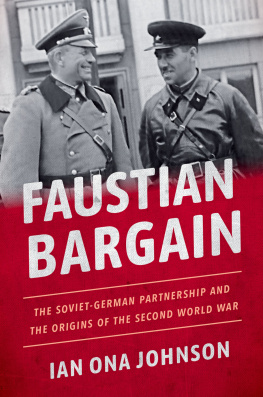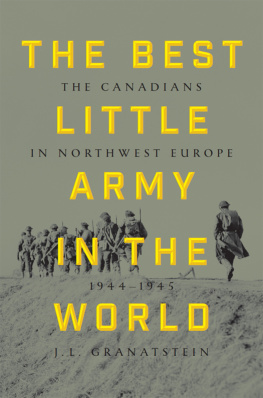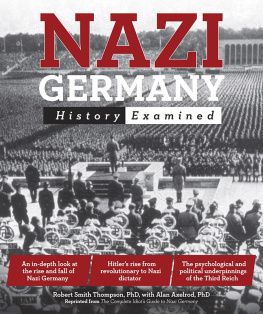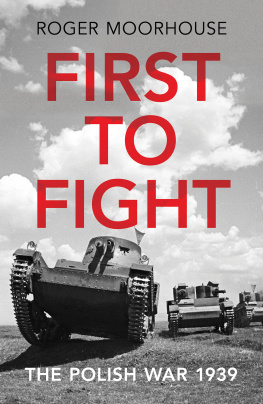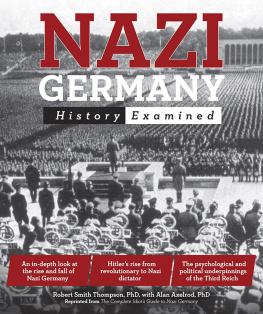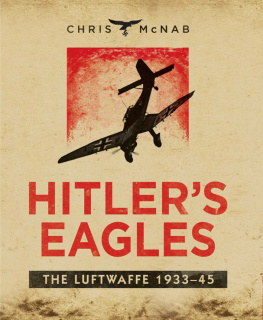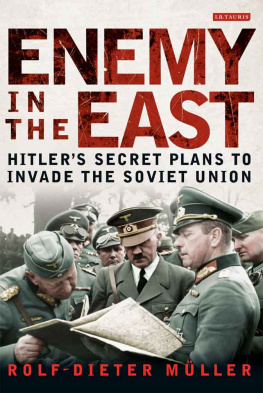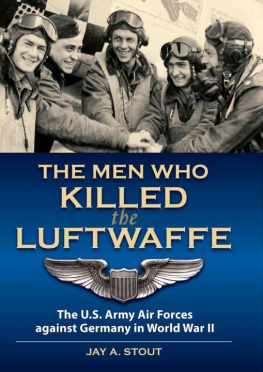Faustian Bargain

Oxford University Press is a department of the University of Oxford. It furthers the Universitys objective of excellence in research, scholarship, and education by publishing worldwide. Oxford is a registered trade mark of Oxford University Press in the UK and certain other countries.
Published in the United States of America by Oxford University Press
198 Madison Avenue, New York, NY 10016, United States of America.
Ian Ona Johnson 2021
All rights reserved. No part of this publication may be reproduced, stored in a retrieval system, or transmitted, in any form or by any means, without the prior permission in writing of Oxford University Press, or as expressly permitted by law, by license, or under terms agreed with the appropriate reproduction rights organization. Inquiries concerning reproduction outside the scope of the above should be sent to the Rights Department, Oxford University Press, at the address above.
You must not circulate this work in any other form and you must impose this same condition on any acquirer.
Library of Congress Cataloging-in-Publication Data
Names: Johnson, Ian Ona, author.
Title: Faustian bargain : The Soviet-German Partnership and the Origins of the
Second World War / Ian Ona Johnson.
Other titles: Soviet-German military cooperation in the interwar period
Description: New York, NY : Oxford University Press, [2021] |
Includes bibliographical references and index.
Identifiers: LCCN 2021008943 (print) | LCCN 2021008944 (ebook) |
ISBN 9780190675141 (hardback) | ISBN 9780190675172 (epub)
Subjects: LCSH: Soviet UnionMilitary relationsGermany. |
GermanyMilitary relationsSoviet Union. | Soviet UnionHistory, Military. |
GermanyHistory, Military20th century.
Classification: LCC DK67.5.G3 J64 2021 (print) | LCC DK67.5.G3 (ebook) |
DDC 355/.03109430947dc23
LC record available at https://lccn.loc.gov/2021008943
LC ebook record available at https://lccn.loc.gov/2021008944
To Libby, Mom, and Dad
Contents
I have been working on this book, in one form or another, for most of my adult life. Over that time, Ive learned that a work of international history like this is as much an odyssey as it is a literary task. This manuscript had traveled tens of thousands of miles before it ever hit shelves. Those many miles from idea to print are impossible to travel without the encouragement of family and friends, and assistance of colleagues, archivists, agents, and editors.
This project began during my first year of graduate school at the Ohio State University. Searching for a dissertation project, I found myself asking how Germany had rearmed so effectively following its defeat in the First World War. That led me to the puzzle of the interwar Soviet-German relationship, the subject of this book. I was fortunate to have a terrific dissertation committee to help steer me through the next six years of graduate work on that project: Colonel Peter Mansoor, who helped me edit the chapters as I wrote them and reminded me along the way not to forget military realitieslike doctrine, training, and budgets; David Hoffmann, who provided invaluable advice on the Russian archives; and Alan Beyerchen, who helped throughout the writing process, while also encouraging me to steer this project toward its current emphasis on technology. Most of all, I am grateful for the constant support and guidance of my graduate school adviser, Jennifer Siegel. It was her mentorship that helped me identify the key questions of my dissertation, prepared me for work in the archives, and helped me to structure my dissertation. Further, her advice steered me toward research at key German industrial firmslike Kruppwhich ended up revealing the critical role of Soviet-German cooperation in Germanys technological rearmament. I hope to have repaid her very slightly for all her assistance over the years, as I am cautiously optimistic that her annual task of writing dozens and dozens of letters of recommendation on my behalf is finally coming to an end.
From Columbus, the dissertation took me to archives in Essen, Stuttgart, Augsburg, Lipetsk, Kazan, Samara, Berlin, Warsaw, Newport, Palo Alto, and Washington, DC, with longer periods spent in Moscow, Freiburg, and London. The archivists at this myriad of stopsalmost without exceptionwere of great help. In particular, I would like to acknowledge the assistance of the staff at the Russian State Military Archiveswhere I took up residence for almost a yearand the Bundesarchiv-Militrarchiv in Freiburg. In addition, the staff at the corporate archives in Germany (Krupp, Porsche, Daimler-Benz, and MAN) all uniformly provided enthusiastic assistance. Working in Krupps Villa Hgel was a particularly rare treat, both from a research perspective and for the beautiful surroundings. In Russia, I am grateful to the archivists at the State Archives of Lipetsk Oblast and the State Archives of Samara Oblast, whose untapped records on the Soviet-German relationship were a great boon.
None of that research would have been possible without generous financial assistance. A Foreign Language Area Studies Fellowship provided the opportunity to hone my Russian language skills in Moscow. The numerous research trips themselves were made possible by grants from the Society for the History of Technology, the Bradley Foundation, the Mershon Center for International Security Studies, and a Fulbright-Hays Fellowship that brought me back to Moscow for a year. I also received generous support from the H. F. Guggenheim and Smith-Richardson Foundations to begin the writing process. But of all the grants that made this dissertation possible, I am most humbled to have received the first research grant from the Lt. Colonel Sean M. Judge Memorial Scholarship. It is named in honor of a friend and fellow graduate student at the Ohio State University who passed away far before his time. I hope he would have enjoyed this book.
From Moscow, the project carried me to New Haven, Connecticut, where I took up a yearlong predoctoral fellowship with International Security Studies (ISS) at Yale University. I cannot say enough to thank Paul Kennedy, both for his company and for his advice, and for the ISS program he built. The latter gave me the chance to finish writing the dissertation among a rich intellectual community of faculty and fellows.
The book was not done moving me across the country yet. After defending my dissertation in 2016, I received a postdoctoral fellowship at the Clements Center for National Security at the University of Texas at Austin. Once again, I was fortunate to find myself in good company, thanks to Clements Center director Will Inboden. I finished the first draft of this book while I was there, while beginning research efforts to expand the scope from the Rapallo Era to the entire Interwar period. The most important event to occur in Austin, though, was that I ran into a lovely young lady while out with friendsmy amazing wife, Mariah. This project brought me to her, and that makes it all worth it.
From Austin I (soon to be we!) then headed back to New Haven, where Beverly Gage hired me to serve as the associate director of Yales Grand Strategy (GS) Program while I finished working on the book. I am grateful to her for the chance to return to Yale for two years, once again enjoying the company of the GS and ISS faculty and fellows. Conversations with faculty, fellows, and my students there helped shape the book in myriad ways. As a result, over my two years as associate director, this manuscript slowly transformed from a dissertation to something beginning to resemble a book.

